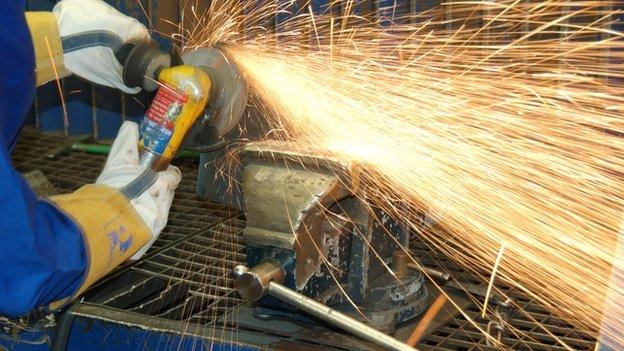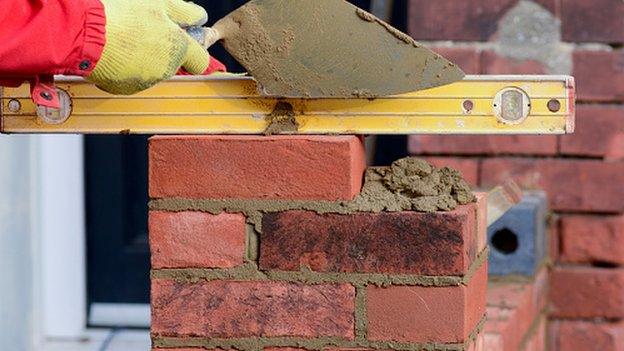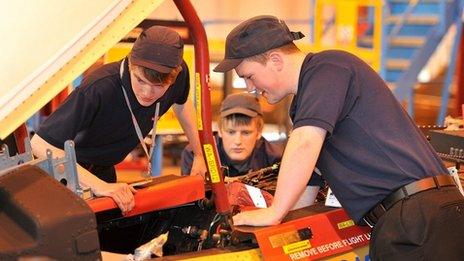'Teenage drop-outs failed by poor careers advice'
- Published

When teenagers drop out of training or education, both they and the country lose out, argues the LGA
Too many teenagers in England are dropping out of school or college or failing to pass their courses, because of poor advice, say councillors.
The Local Government Association wants councils to be given control of careers advice to ensure teenagers "pursue the right course for them".
A report for the LGA suggests the teenage dropout rate costs the country £814m a year.
The government said its reforms were ensuring teenagers gained vital skills.
'Sense of failure'
The LGA commissioned the Centre for Economic and Social Inclusion to analyse the latest figures which were for the year 2012-13.
The researchers combined dropout and failure figures on A-levels, apprenticeships and further education courses to give a total of 178,000 16 to 18-year-olds not completing their courses.

The quality of careers provision has been a cause of concern for some time
Of these, 92,000 students withdrew from schools, primarily from AS and A-levels; 24,200 did not complete apprenticeships or training courses and an estimated 61,900 withdrew from FE courses.
The teenagers at greatest risk of dropping out were apprentices, with a quarter not finishing, suggest the figures.
The authors note success rates both for AS and A-levels and FE courses have improved in recent years, with 16% of students dropping out of further education, 9% from individual AS-levels and 5% from individual A-levels.
This has contributed to a long-term fall in the total number of drop-outs, of 30% since 2006-7, they add.
Despite this they calculate 12% of all government spending on post-16 education and skills goes on "uncompleted" courses.
"For the young person it means coping with uncertainty and a sense of failure and with hard decisions about what to do next.
"For schools, the exchequer and the taxpayer there is the cost of providing education that does not result in a positive outcome."
'Bums-on-seats'
The LGA says the current centralised approach to post-16 education does not allow schools and colleges to help teenagers find the right courses.
"Local councils, colleges, schools and employers know how to best help their young people and should have devolved funding and powers to work together to give young people the best chance of building careers and taking jobs that exist locally," said Cllr David Simmonds, chairman of the LGA's children and young people board.

Careers advice aims to give young people information about the range of jobs and training available
The Association of Colleges said the reasons for young people not finishing their courses were "complex".
"Sometimes they get a job and therefore leave education," said AoC chief executive Martin Doel, but he agreed poor careers advice was a problem.
"This report shines a light on failing careers advice in this country.
"We would like to see the establishment of careers hubs in every local area supported by schools, colleges, universities, local councils, employers and Jobcentre Plus to ensure everyone has access to the high-quality impartial advice they deserve."
The government said its new independent careers and enterprise company would boost collaboration between schools and employers and give young people access to high quality advice and opportunities.
"We are reforming academic qualifications and vocational education to ensure young people get the knowledge and skills that they need to move into a job, apprenticeship or to continue their education," said a Department for Education spokesman.
The spokesman said the government had ring-fenced £7.2bn to ensure an education or training place for all under-18s, adding that the number of young people not in education, employment or training was at its lowest recorded level.
- Published7 January 2015

- Published10 December 2014

- Published10 September 2014

- Published23 January 2013

- Published23 November 2012
